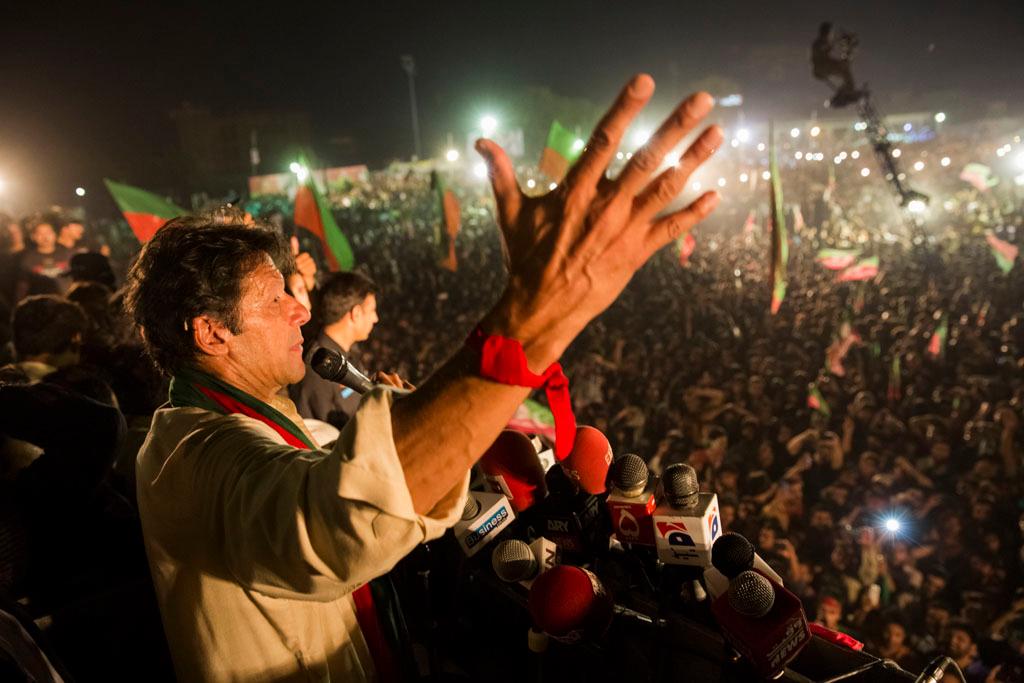Old rules in New Pakistan
Imran Khan, chairman of the Pakistan Tehrik e Insaf (PTI) party, addresses supporters during an election campaign rally on May 06, 2013 in Multan, Pakistan. Imran Khan and Nawaz Sharif of the Pakistan Muslim League-N (PMLN) have been campaigning hard in the last weeks before polling.
KARACHI, Pakistan — For the last two years, former cricketing superstar Imran Khan has been trumpeting talk of change to Pakistan's public. Standing in front of beloved national monuments all across the country, Khan has pledged that if his Pakistan Tehreek-e-Insaf (PTI) party wins national elections on Saturday, he'll transform Pakistan into "Naya [New] Pakistan."
His promises — which range from stopping drone strikes to revitalizing the country's economy to eliminating corruption — have struck a chord with many people in the beleaguered "old" Pakistan, particularly minorities who have been promised a life without persecution under his rule.
But that was before Khan mentioned the Ahmadis.
Ahmadis are a minority Muslim group in Pakistan who've long been vilified for their religious beliefs by mainstream politicians, Islamic theologists and the country's militants. Mainstream Muslims in Pakistan consider Ahmadis heretics for believing their sect's founder, Mirza Ghulam Ahmed, was a messiah.
Since 1974, it's technically been illegal to be both a Pakistani citizen and an Ahmadi. But most of the country's four million Ahmadis are nevertheless registered to vote, having wiped their religious affiliation from their official records. Though politicians consider them an untapped "vote bank," none have taken the political risk of courting the Ahmadi vote directly.
Khan nearly made it through the campaign period without having to state a position on Ahmadi rights. But events over the last two weeks forced his hand. After video surfaced of a PTI supporter meeting with a member of the Ahmadi community in London, Khan went on an anti-Ahmadi offensive. In a video message to the people of Pakistan, he defended laws that restrict Ahmadi rights, promising to uphold them if he is elected.
The Khan in that video was a far cry from the moderate, secular persona that the candidate has worked so hard to cultivate. Initially, his message of reform and hope had convinced the Ahmadi community that perhaps they had a shot at living peacefully in Pakistan. Many would have ticked their ballots for the PTI, choosing the New Pakistan. But it seems New Pakistan might not be so different from the old; Ahmadis have announced they'll instead boycott the polls.
Since Khan revealed his feelings about the Ahmadis, other young Pakistanis' opinions of him have soured, too.
On the eve of the elections, some of my friends are rethinking their choices. "Imran Khan and PTI were the obvious choices last week," said one. "Now, not so much. As a Shiite in Pakistan, how can I be sure that I won't be next?"
We want to hear your feedback so we can keep improving our website, theworld.org. Please fill out this quick survey and let us know your thoughts (your answers will be anonymous). Thanks for your time!
